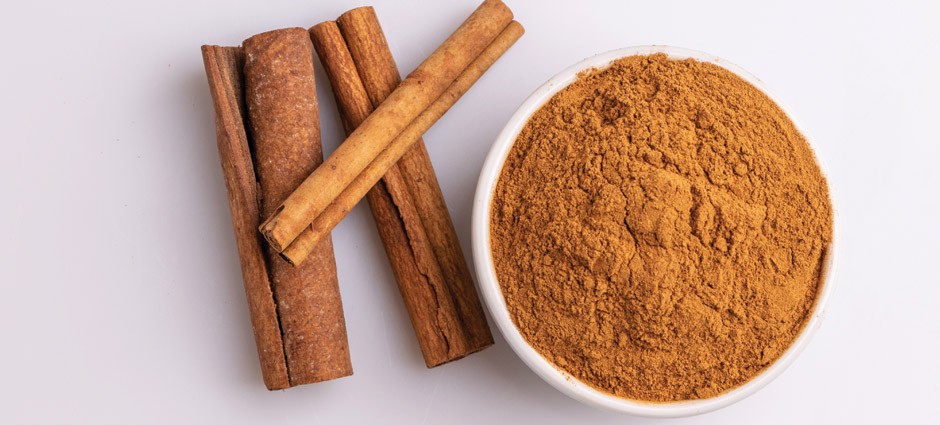› Health benefits
Studies on cinnamon don’t support using it for any health condition. A 2012 systematic review of 10 randomized controlled clinical trials in people with type 1 or type 2 diabetes suggests that cinnamon doesn’t help to reduce levels of glucose or glycosylated hemoglobin A1c (HbA1c), a long-term measure of glucose (blood sugar) control.
Research supported by the National Center for Complementary and Integrative Health is looking at the effect of cinnamon on processes involved in multiple sclerosis.
› How much do I need?
The dosage varies depending on age and what it is being used for. Be sure to follow relevant directions on product labels, and consult your pharmacist, physician or other healthcare professional before using.
Cinnamon supplements appear to be safe for most people for short-term use if not taken in large amounts. Some people may have allergic reactions to cinnamon. Cassia cinnamon contains varying amounts of a chemical called coumarin, which might cause or worsen liver disease. In most cases, though, cassia cinnamon doesn’t have enough coumarin to make you sick. However, for some people, such as those with liver disease, taking a large amount of cassia cinnamon might worsen their condition.
Cinnamon should not be used in place of conventional medical care or to delay seeking care if you have health problems. This is particularly true if you have diabetes.
› Dietary supplements
Cinnamon supplements are most commonly available as capsules and liquid extracts.
Source: National Center for Complementary and Integrative Health
Please consult your health care provider before making changes to your vitamin/supplement regimen.


